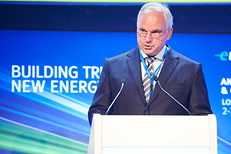
In his introductory words, EURELECTRIC President Johannes Teyssen (CEO of E.ON) emphasised the importance of building trust and working towards a new energy world in the interest of the customers. Reaching an agreement on the EU's 2030 climate and energy policies, coordinating a consistent market design across Europe in the wake of more intermittent generation and allowing a well-functioning electricity market are the essential milestones paving the way of such a future electricity system, he said. Current discussions on the Ukraine crisis should not divert our attention from meeting these objectives.
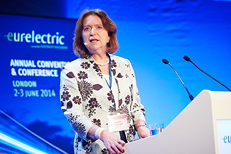
Angela Knight, CEO of Energy UK, warmly welcomed the participants of the EURELECTRIC convention to London. The debate on the energy future is very timely and will have to take into account the results of the recent European elections, she underlined in her opening address. One of the key lessons of the elections is that for both industry and politicians, the central task should be to link energy policies to consumers. "Building trust was never so important," she stressed. Energy policy should avoid silos, deliver effective solutions, and be done in a transparent manner.
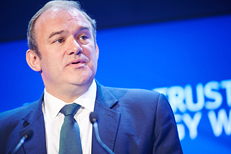
UK Secretary of State for Energy and Climate Change Edward Davey emphasised the importance of the decisions on an EU climate and energy package for 2030, which will be taken by Heads of Government at the October European Council, also calling for the package to include a robust energy security strategy based on the recent G7 proposal. Turning to the question of affordability, Davey highlighted the need to complete the internal energy market, to develop all low-carbon technologies, develop shale gas, and to promote cost-effectiveness through a single greenhouse gas emissions target approach to 2030 of at least -40%. He ended with a strong call for urgent reform of the EU Emissions Trading System, for new efforts to drive demand-side energy efficiency measures, and for new interconnectors.
Keynote Speech
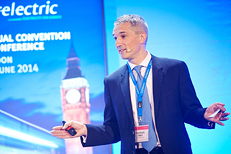
In his keynote speech, Christoph Frei, CEO of the World Energy Council, presented the top three topics that keep energy leaders awake at night, based on the WEO World Energy Issues Monitor: energy price volatility, global recession and the climate framework. In terms of trends, it is apparent that "CCS is flying off the map, while nuclear becomes a Chinese story". According to WEO scenarios by 2050 global demand will grow significantly and although renewables (especially solar) will grow they will not be able to replace fossil fuel completely. To reflect this development he stressed that utilities must be more decentralised and move "from operational brilliance to service brilliance". Political and institutional risks are the biggest obstacles for investments, he said, calling for a more integrated policy approach.
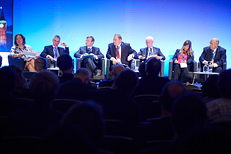
The panel debate, moderated by Angela Knight, Chief Executive of Energy UK, focused on the future of European power and the viability of the decarbonisation vision in the context of the current economic, financial and regulatory constraints. How serious are we about the energy transition? Do Europe, its businesses, policymakers and citizens share the same decarbonisation vision? And what can practically be achieved within the 2030-2050 timeline?
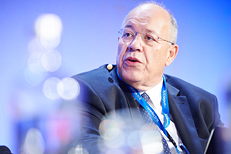
Professor Pantelis Capros, Professor of Economics at the National Technical University of Athens, noted the level of industry's support for the introduction of capacity mechanisms, but explained that the European system will need a new type of 'resource adequacy' mechanism in order to solve the challenges posed by renewables and the need for highly flexible gas back-up. He also noted that the expectation of higher ETS prices should mean that both gas and nuclear will have reduced need for additional economic support. Later in the debate, he noted that China is now out-pacing Europe in developing new low-carbon technologies.
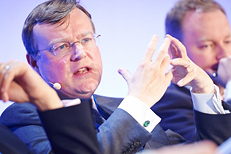
In reply to previous comments, Pierre-Marie Abadie, Director of Energy Affairs at the French Ministry of Ecology, Energy, Sustainable Development (MEEDDAT), stated that the objectives of security of supply and climate should not be seen as conflicting goals, to the contrary. In their talks ahead of the June European Council, government representatives are aware of the need to design policies on 2030 and security of supply that go hand-in-hand, he affirmed.
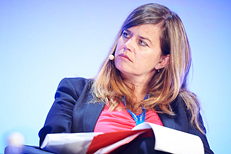
Yvon Slingenberg, Head of Unit - Implementation of ETS at the European Commission's DG Climate Action, recalled that the EU ETS has been operating for almost ten years, and that its cap has a downward trajectory, which already provides a clear guidance on emissions reduction for the energy sector to 2030 and beyond. This trajectory will increase in steepness as part of the 2030 package in order to deliver the -40% GHG target.
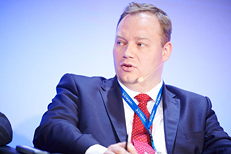
Tomasz Dabrowski, Director of the Energy Department at the Polish Ministry of Economy, highlighted a wide spectrum of energy policy drivers in various parts of the world. There is a need for a balanced approach to solving different energy policy objectives in Europe, he said. He also expressed concerns about potential energy price increases resulting from the foreseen system reform of the EU ETS and called for a careful analysis of the consequences related to those interventions.
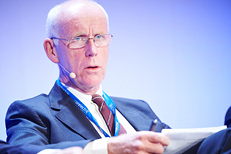
Per Sanderud, Director General at the Norwegian Water Resources & Energy Directorate (NVE), described from the Norwegian perspective how market integration can improve Europe's security of supply. With 100% renewable production Norway can provide more electricity to Europe, but doing so requires well-functioning markets. As a prerequisite, policymakers need to reduce national interventions for price volatility to allow markets to give the right signals for investors and interconnectors. He also sounded a note of caution regarding the design of capacity markets, which should be cross-border, technology-neutral and be with an end date. He insisted that the long-term future will be electricity produced by renewables supported by research, while shale gas would just be a short-term solution.
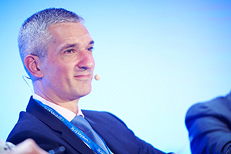
Christoph Frei, Secretary General of the World Energy Council, reminded participants that capital is extremely sensitive to perceived political and regulatory risks and an imbalance in the nature, price, and value of investment risks makes capital flow elsewhere. On a global level he warned that, if the world continues on the current pathway, 320-530 million people will still be without electricity in 2050.
Keynote Speech
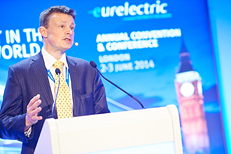
"Europe is standing in the middle of an energy revolution - and it is not an easy place to stand," Stephen Woodhouse, Director at Pöyry Management Consulting, emphasised at the outset of his keynote speech. Rather than returning to a fully centralised regulated system, he underlined the importance of evolving towards a market with new instruments. In doing so, attention should be paid to minimising political intervention. "It is the job of the industry to solve its own problems," he added. In this transition process, companies should be careful to build a strong relationship with their customers and understand their needs. "It is essential to rebuild faith in the market without asking for intervention. Trust is the essential glue of an affordable and decarbonised supply," he concluded.
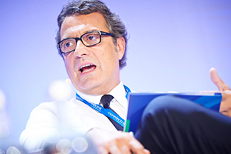
Despite the current uncertainties affecting the power sector, going back to a regulated market is not an option, António Mexia, Vice President of EURELECTRIC and CEO of EDP, made explicit during the panel debate. "We are puzzled about the rules of the game as electricity prices are no longer providing a signal for investment," he said. He saw a need to move towards a new market design for the whole value chain. This market design should feature the energy market, capacity remuneration mechanisms, the EU Emissions Trading System, operational integration of renewables, and demand participation, among other things. "This will require a more complex design that would preserve competitive pressure," he added.
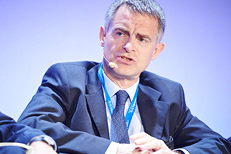
In his panel intervention, ACER Director Alberto Pototschnig expressed his belief in the markets' ability to support the challenges facing the industry and excluded the option of going back to reregulation of the markets. "A sustainable future will cost more than what we are used to, so we need to do efficiently," he stressed. A lot of progress has been achieved in the way of integrating European markets and the target model should be fully implemented. It is also important to harness demand response and help customers make informed choices, he concluded.
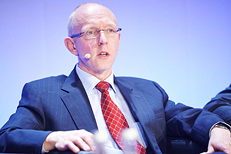
Nick Winser, President of ENTSO-E, shared the views of the previous speaker about the achieved progress in building the internal energy market. The launch of the North-West regional day-ahead market coupling marked the creation of the largest wholesale market in the world, he reminded participants. He also acknowledged some progress being made by TSOs and power exchanges in the intraday market integration project and indicated that the delivery of the intraday trading platform is foreseen to become a reality in 2015. He also highlighted other future challenges, including the need for the target model to reflect the medium-term reality of carbon pricing, integration of renewables into the market, and grid infrastructure development.
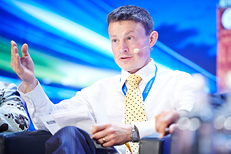
For Stephen Woodhouse, Director at Pöyry Management Consulting, improving the current market design would imply market integration of renewables, development of trading products to value flexibility in the market and developing demand response.
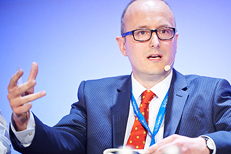
Craig Mackenzie, Investment Director at Aberdeen Asset Management, said that pension funds see a bright future for electricity, in particular due to the capital intensive and long-term returns profile of renewables projects. However, there has been a recent history of problems and losses from energy investments, making further investment difficult. Investors are therefore strongly interested in policy: for instance, he would like to see a reinforced EU Emissions Trading System and more certainty on market design. He added that an exciting development for equity analysts at the moment is the focus of ICT companies on smart homes - this is very good news overall, but certainly poses a competitive challenge for electricity generation companies.
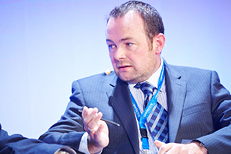
Paul Fidler, Director of Operations at the Energy Networks Association (ENA), stated that "distribution system operators can attract private capital in spite of regulatory pressure", as proven in the UK where many network companies are owned by investors like pension funds. Keeping in mind the customer, he added that DSOs need to engage more with customers, providing them with more options on how they use energy, for instance through demand side management. In order to deal with the renewables challenges ahead industry must use new ways of managing the system in an active manner, he concluded.
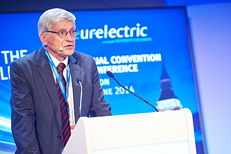
The second session of Day 1, chaired by EURELECTRIC Secretary General Hans ten Berge, focused on bringing forward a sustainable and affordable energy transition. Mr ten Berge briefly outlined the two main elements for discussion: EURELECTRIC's recent energy prices analysis and the work carried out by EURELECTRIC and Accenture on a cost-efficient energy transition in Europe. He directed the discussion to how we can "move from theory to action".
Keynote Speeches
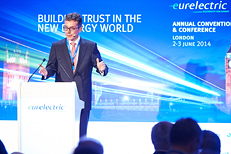
Sander van Ginkel, Managing Director at Accenture, presented an Accenture studycarried out for EURELECTRIC titled "Forging a joint commitment to sustainable and cost-efficient energy transition in Europe". The study showcases the way to achieve a sustainable and cost-efficient long-term energy transition. "The 2020 policy framework is only the first step in this long-term transition process," he noted. Going forward, he stressed that "until 2030, in a business as usual scenario, there could be an additional price increase between 38% and 53% compared to 2012". To mitigate this sharp increase, four action levers should be enacted: renewables policy optimisation, market integration, active system management, and demand response & energy saving. "The time for change is now. We need a joint agenda encompassing countries, governments, regulators, utilities and civil society."
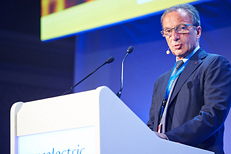
Henri Proglio, Vice President of EURELECTRIC and Chairman and CEO of Electricité de France (EDF), used his keynote speech to highlight that Europe can and must move quickly to decarbonise at reasonable cost. "We need to ensure the position of energy as a long-standing driver for growth," he said. The challenge was to create a European energy mix less dependent on external sources and balanced around three components: dispatchable low-carbon sources, renewables generation and fossil generation that is innovative and environmentally efficient. "In addition we need to develop services and set up business models that help reduce energy bills," he argued while stressing that "customer satisfaction is at stake." To this end, the industry need to keep the bill in check and put the customer at the core of its business strategies, he concluded.
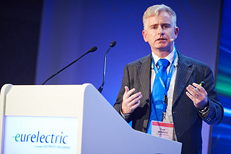
Tom Howes, Deputy Head of Unit - Economic Analysis and Financial Instruments at the European Commission's DG Energy, also welcomed the work carried out with Accenture, which he said was consistent with the Commission's views on energy prices and costs. He also underlined the three top energy priorities of the Commission: sustainability, competitiveness/affordability and security of supply, this last one becoming more urgent by the ongoing crisis in Ukraine. He saw five main points that could prevent rising costs: completing the internal wholesale and retail market, switching the energy supplier, minimising network costs through best practice, keeping energy and climate policies cost-effective and using more energy-efficient products.
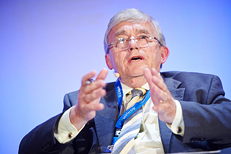
"The more participation from customers, the more chances to unblock the current issues at European level," Andrew Buckley, Director General of the Major Energy Users' Council in the UK, explained, kicking off the panel debate. In addition, customers today have the opportunity to smoothly reduce their consumption and peaks. "Customers have to do more, can be more involved," he said. Asked about the results of EURELECTRIC's recent energy prices analysis he concluded by saying that "taxies and levies, sadly, are the parts which will go up more in the following five years."
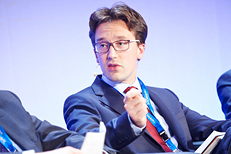
Fabien Roques, Senior Vice President at FTI Compass Lexecon, proposed that the energy transition take into account an often forgotten element: innovation. "Innovation is needed at four main levels: technology, relations with consumers who are much more involved today, market mechanisms and in energy policy," he said. An efficient way forward should also not disregard decision-making at a regional level, although realising that "we don't have the same issues in each country nor the same market arrangements". An example of this is the increasing need for TSO coordination at a regional level. "Smart, credible regulation is needed. We need to understand how institutions should evolve so that we have the proper governance to tackle the sector's challenges," he concluded.

Tom Tindall, Director of Energy Insight and Head of the IHS European Power Service, shared his view on the different elements that have to be taken into account in the evolution of power market design. "The change from an OPEX driven value chain to a CAPEX driven one should lead us to rethink the market design," he stated. He underlined the need for the reform of the EU Emissions Trading System, the introduction of tender based schemes and the introduction of balancing responsibility for all markets participants as keys to a successful energy transition. He concluded by saying that "cooperation between TSOs, namely for security of supply assessments is crucial."
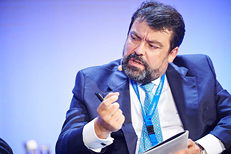
"The technology for active system management is already in place," stated Javier Ormazabal Echevarria, President & CEO of Ormazabal Velatia. "And it could even be improved - but long-term investment is needed," he added. He also pointed out that looking forward to the positions that must be taken in the future, the right balance needed to be struck between the long-term processes defined by EU policies and the short-term ones affected by local issues.
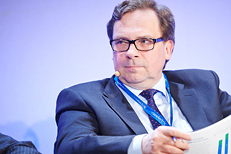
Discussing the regulatory framework needed for ensuring affordable electricity, Tapio Kuula, President & CEO of Fortum Corporation, called for strong long-term regulatory commitments that are predictable and consistent. "Trust in a competitive business environment is essential to allow markets to work," he added. Mr Kuula also emphasised the importance of a European-wide harmonised electricity market. "Making the EU internal energy market function is the key priority for economic and environmental effiency," he argued. In this context, he saw energy, capacity, and flexibility as the key components to be taken into consideration. "To grasp the value of flexibility, the interactivity between the supplier and customer will be key," he argued.
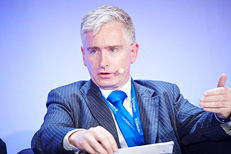
The new Commission will look into the issue of how to improve regulation, promised Tom Howes, Deputy Head of Unit - Economic Analysis and Financial Instruments at the European Commission's DG Energy. Flexibility provided to TSOs, for instance, is currently blocked either by European regulation or national regulatory authorities. A more coordinated approach between European, national but also regional and local policies is needed, while always maintaining the right balance between the decarbonisation goal and security of supply, he added.
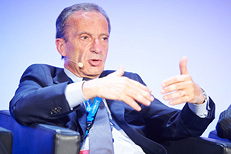
Following up on the grid infrastructure investment challenge, Henri Proglio, Vice President of EURELECTRIC and Chairman and CEO of Electricité de France (EDF), said that research and development, in grids as well as in other parts of the electricity value chain, should be seen as a key driver for the industry. In this respect the unbundling of the energy sector had added unnecessary transaction costs and had undermined the efficiency of the energy system. He also stressed that the market now does not allow any investments. "We are back to subsidies or contracts," he stated, adding that "an urgent market rethink is needed". The end game should be an efficient use of affordable energy - and we are far away from that, he concluded.
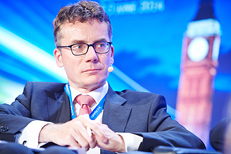
Summing up the reactions to his keynote speech, Sander van Ginkel, Managing Director at Accenture, stressed the broad consensus on the point that we all want to reach after the undergoing energy transition. "There is a common agenda, but how do we execute it: at a regional level? At a pan-European level?" He concluded by asking all stakeholders involved in the energy transition to take a pragmatic approach: "If everyone is aligned, why don't we move on at full speed - or else bills will go up. We need pragmatic steps."









